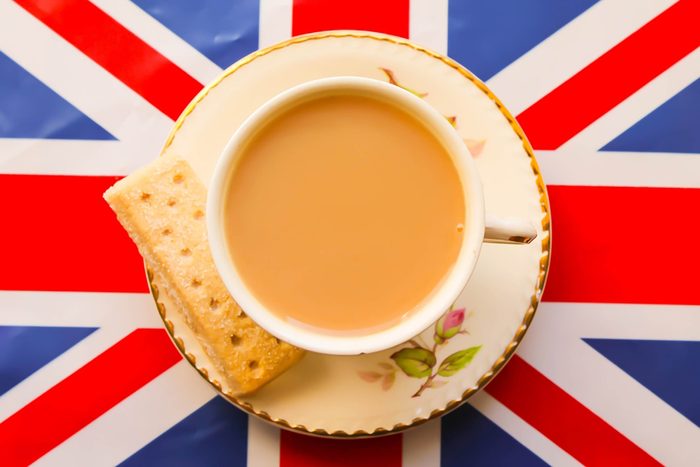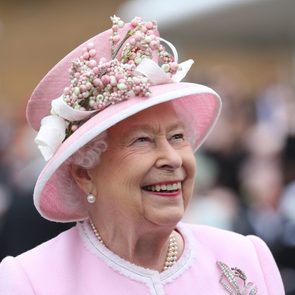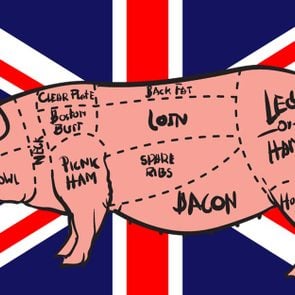This Is Why the British Drink So Much Tea
Updated: Jan. 04, 2022

Making tea is the British response to every situation, from birthdays to bad news. But how did this small island come to drink so much tea?
Brits drink a lot of tea
In America, tea has two primary associations: iced (served on a Southern porch on a sweltering day) or salty (giving some fish a caffeine boost at the bottom of Boston Harbor). In Britain, however, tea is inextricably woven into the fabric of everyday life. The proof is in the numbers: the British drink 100 million cups of tea every day. That’s almost 36 billion cups per year, divided amongst British men, women, and children (that’s right, they start them young over there). For contrast, only about 70 million cups of coffee are drunk daily in Britain, and we bet they don’t call it a cup of Joe, either. These other common foods have different names in Britain, too. Anyway, what’s with all the tea breaks?
Tea for every occasion
Many Brits firmly believe that no task, from studying to data entry to putting up a shelf, can be accomplished without a good cuppa. Some even measure the length of a task by how many cups of tea are required to finish it (painting a wall might take three cups, say, while researching for your thesis could be five plus). Tea is the default response to a myriad of situations: waking up, shocking news, returning from a boozy night out, good news, breaking up, giving birth, meeting a friend, feeling uncomfortable, or feeling happy. How you take your tea indicates your social class, personality, and tribal affiliation. Make tea: it’s what Brits do instead of panicking. But the country that consumes the most tea annually is Turkey. Tea isn’t even from Britain. So what gives?
The history of tea-drinking
In 1946, George Orwell wrote in the Evening Standard, “tea is one of the mainstays of civilization in this country.” Tea had been such for nearly 300 years, ever since Catherine of Braganza arrived from Portugal and married King Charles II, bringing with her a ritual of daily teatime. The other nobles followed suit, and the British East India Company began to import much more tea from its colonies in the Far East, where it had been grown and drunk for thousands of years. The price fell, and suddenly every Briton had a tea habit. Tea is one of the few experiences in Britain that cuts across social class divides, race, ethnicity, and income levels (the other is the weather). It also gives socially awkward Brits something to do with their hands. After centuries of ritual, the British identity is now at least 10 percent tea. But most cultures that drink tea (such as China, India, and Turkey) don’t add milk, so why do the British? Speaking of, Americans love ice in their drinks, so why don’t the British?
Milk plays an important role
Tea is traditionally brewed in a pot and poured out into individual cups. Most people, however, could not afford fine bone china, and the cups they did have would often shatter under the heat of the boiling tea. Milk was therefore added first to the cups to lessen the heat of the hot tea and keep the cups intact. Many people apparently grew to like the taste, although some take their tea with sugar or lemon instead. In modern times, the “milk first” issue is a hot topic. Friendships have been lost over whether it’s correct to add milk to your cup before the tea or after, but history and science both say before: Scientists note that cold milk poured into hot tea heats unevenly and can give tea that awful “skin” on top. These are the other etiquette rules you need to follow in Britain.
But so does social class
British anthropologist Kate Fox, author of Watching the English, notes that milk in tea also gives off social cues to Britain’s all-important social class system. According to Fox, tea strength wanes as the social class gets nearer to the aristocracy. The strongest brews of black tea are drunk by the working class, who are then required to temper the bitter taste with plenty of milk and sugar to make “builder’s tea.” “Taking sugar in your tea is regarded by many as an infallible lower-class indicator,” Fox writes. So there you have it! Tea communicates a lot, from social standing to emotional state, which is useful for the British, who tend to be suspicious of emotional displays. Best just to have a nice cup of tea instead.
Sources:
- UK Tea & Infusions Association: “Tea FAQs”
- BBC: “Why do the British love the taste of tea so much?”





















